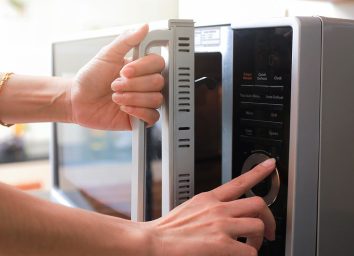What Happens To Your Body When You Eat Microwaved Meals
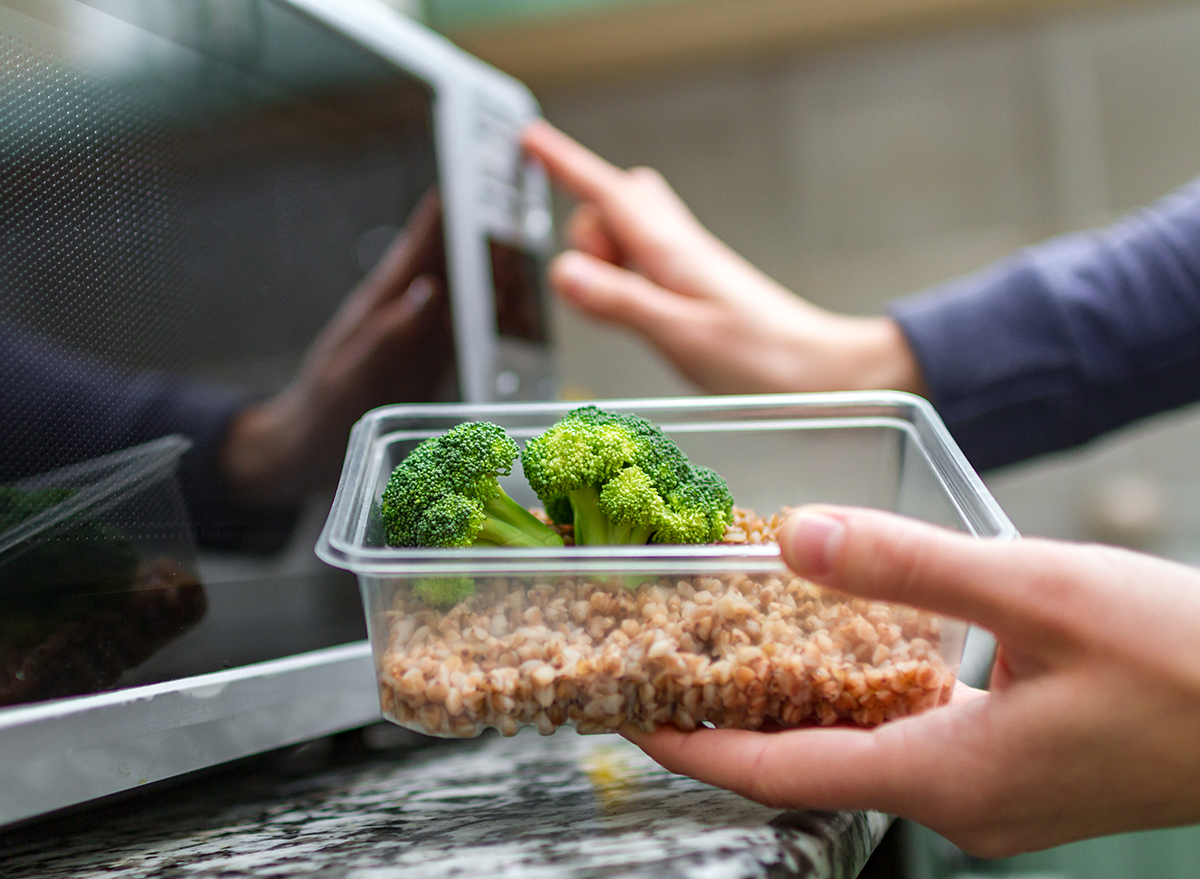
We wanted answers, once and for all. Although microwaves can easily be seen as cancer spreaders because of radiation, in reality, they aren’t as bad as you think. In fact, microwaving your food is a perfectly easy way to heat up something quick—especially a healthy frozen meal you picked up at the store. Here’s what really happens to your body when you eat microwaved meals, and for even more healthy tips, be sure to check out our list of The 7 Healthiest Foods to Eat Right Now.
You won’t be harmed by radiation.
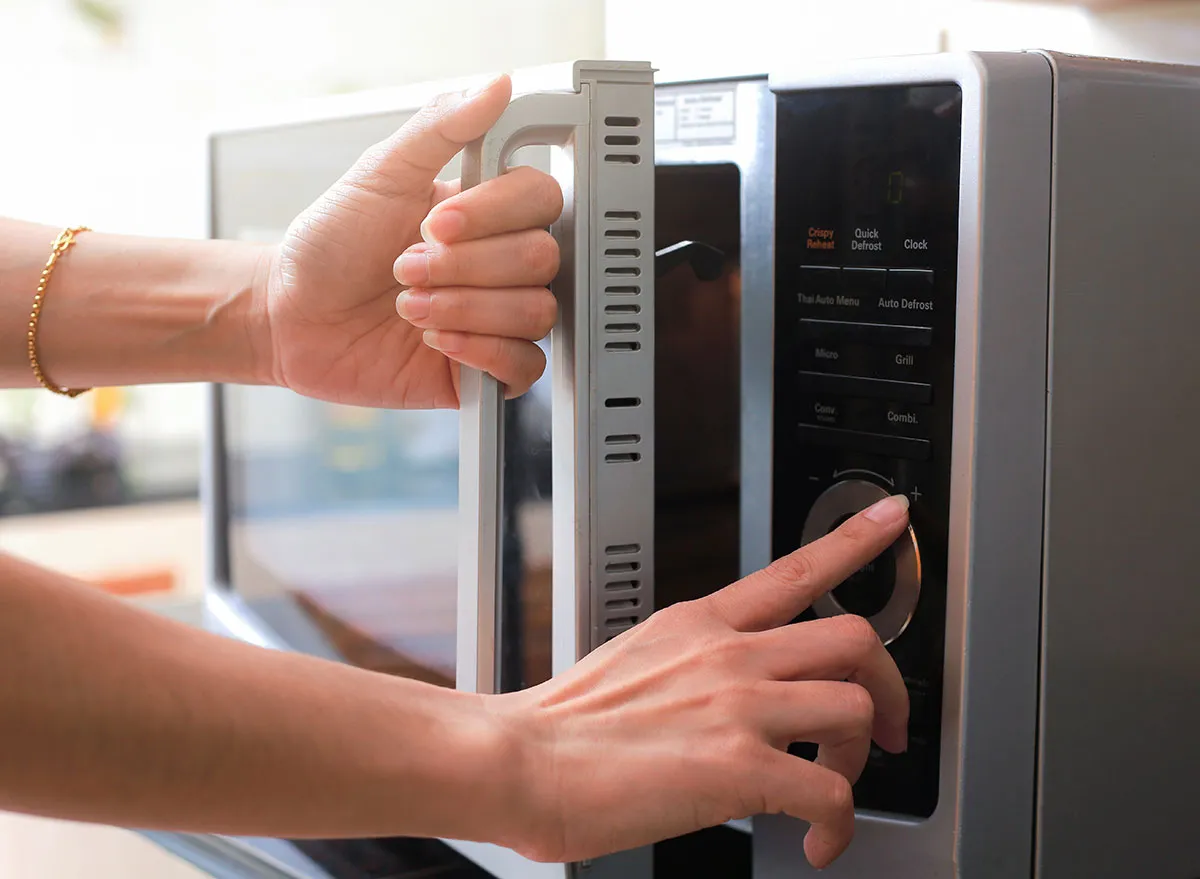
Microwaves rely on radiation to heat up food, and some may say that the radiation can end up on your food, or even cause exposure to the one next to the microwave. This is simply not the case. According to the Food & Drug Administration (FDA), FDA-approved microwaves are not allowed to leak a certain amount of microwave radiation within two inches of the microwave (only 5 milliwatts). And as you move away from radiation, you’re less likely to be harmed. So unless you’re pressing your face against the microwave during the entire heating process, radiation will not harm you. This also why microwaves stop when the door is released because radiation instantly stops and you will not be harmed.
Plus, radiation in microwaves is also the same electromagnetic waves we are exposed to daily. According to the BBC, the same type of exposure can happen when you bake bread or even eat any type of crop that was exposed to the sun.
Here are the 13 Biggest Microwave Mistakes You’re Making.
You’ll get even more vitamins and minerals.

Wait…really? It’s true! Typically when raw produce is cooked it can release some of the vitamins and minerals that would be in its natural state. However, according to Harvard Health, because microwaves take the smallest amount of time (and use of water) in order to cook food, that means the food will still keep in more vitamins and minerals because it didn’t have all that time to release while cooking.
However, Harvard Health also does make it clear that prepared vegetables—cooked in the microwave or slow-roasted in the oven—are still good for you to eat, and to not get lost in this detail. But in terms of what happens to your body, if you buy a bag of broccoli to steam in the microwave, chances are you may get a bit more of the benefits than you would boiling it on the stove.
Here are 9 Warning Signs You’re Not Eating Enough Vegetables.
But only depending on what you eat.
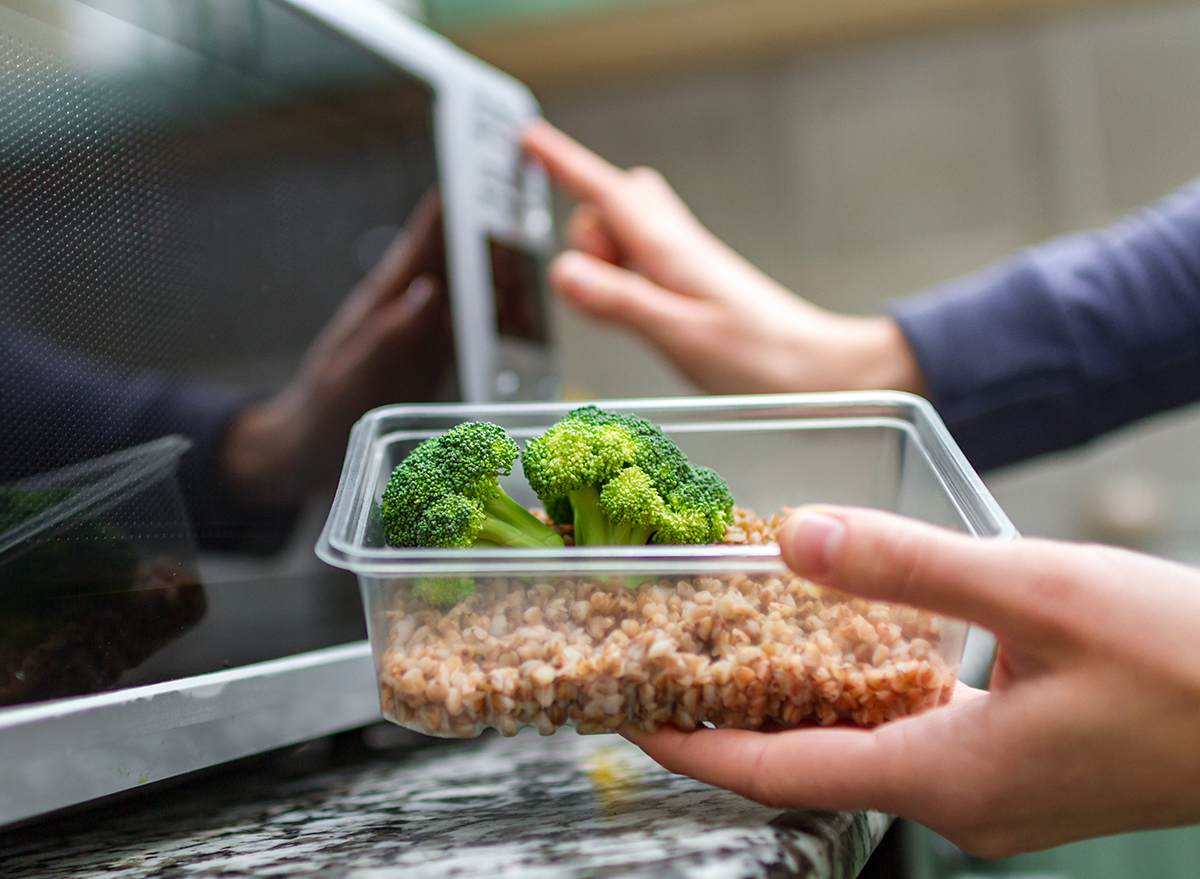
If you’re eating unhealthy microwave meals that don’t have a ton of nutritional value to begin with, then your meal won’t provide you with those extra vitamins and minerals. Typically those microwaved meals you see in the frozen food section of loaded with hidden added sugars, high amounts of sodium, and a plethora of chemicals and preservatives. Instead, focus on healthier frozen dinners that can still give you the beneficial vitamins and minerals you need.
You may ingest chemicals.
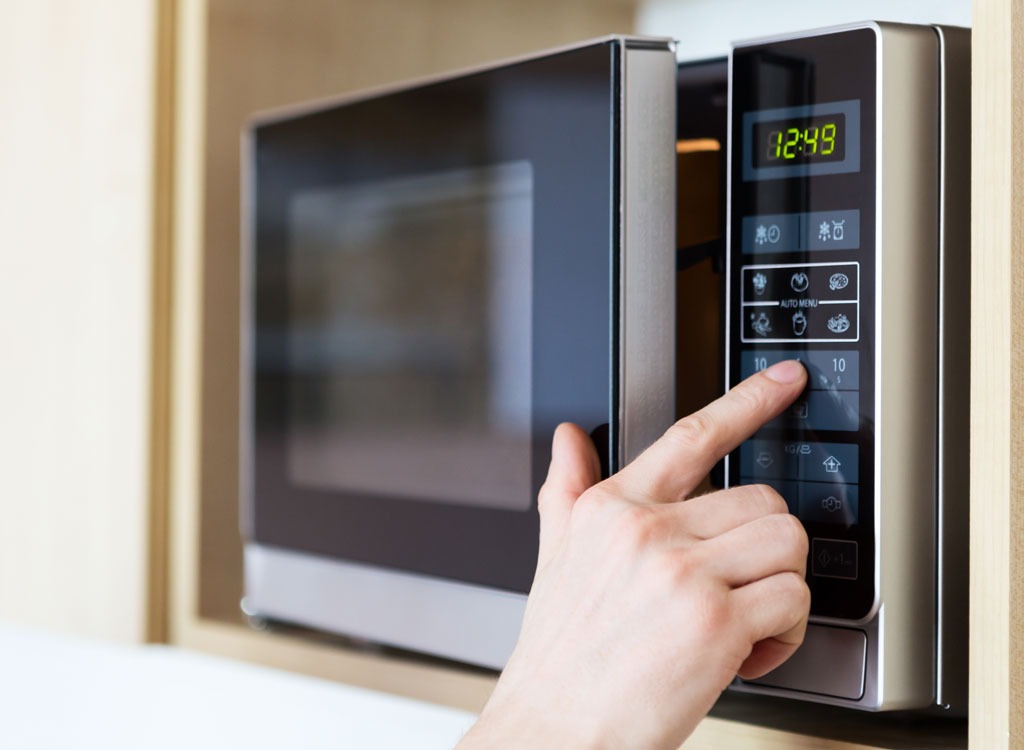
This would all be dependent on what container you’re heating up your food in. According to the BBC, when heating up plastic containers or wrapping, studies have found that this can increase one’s risk of ingesting phthalates—plastic additives that can break down and leach into your food. Instead, the best thing to do is remove the food into a ceramic or glass plate/bowl before heating it up.
You may be consuming way too much salt.
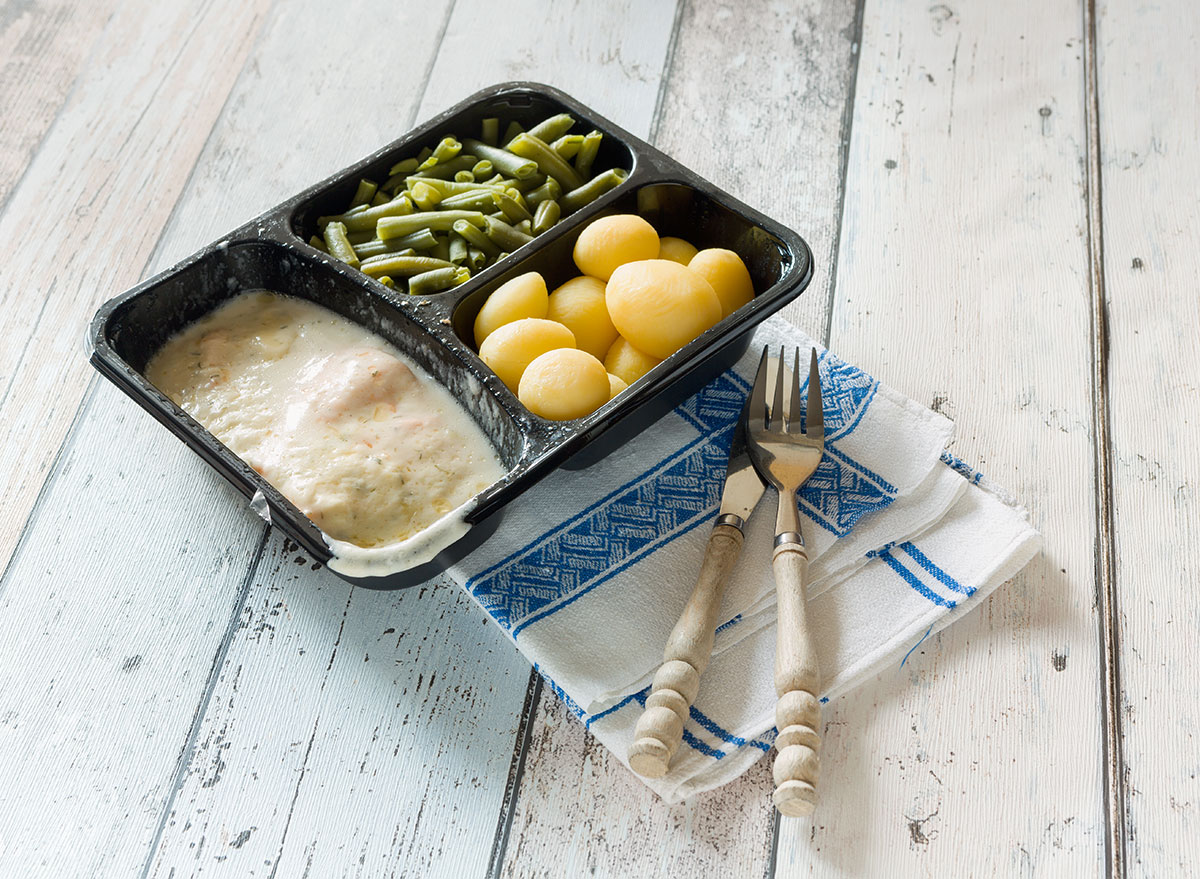
Take a look at nutritional values before you eat microwaved meals. How’s the sodium count looking? Most microwave meals are loaded with sodium, which can serve as a preservative and to make the meal “taste better.” However, with so many healthier frozen meals to turn to, you don’t have to rely on these sodium-filled microwavable meals that instantly have you surpassing your allotted sodium count for the day.
Plus, if you’re ingesting more than your typically recommended daily amount of sedum, you’ll be at a higher risk of accelerating your blood pressure which can lead to cardiovascular diseases.
You could gain weight.
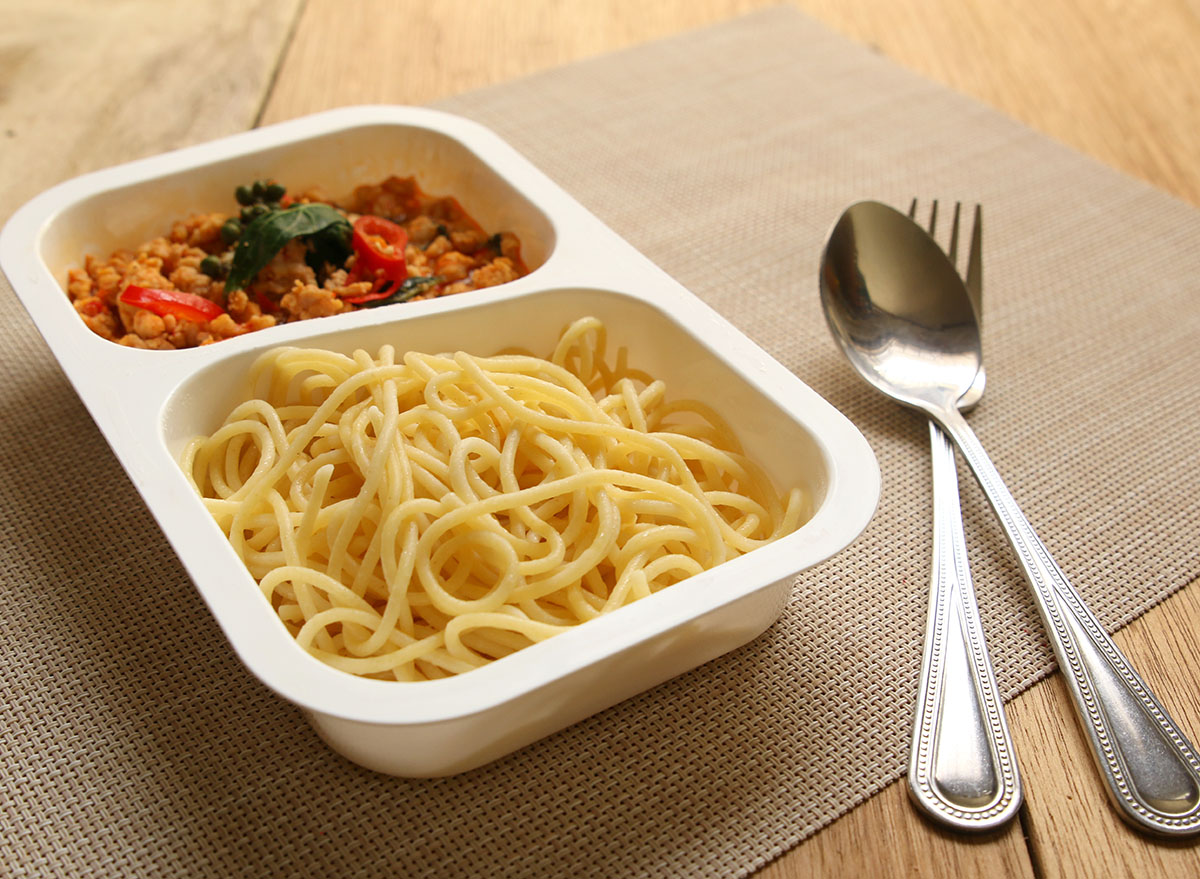
Again, only if you’re eating the wrong kinds of microwaved meals! Focus on healthier alternatives that are full of good-for-you ingredients that will pump up the nutrition with minimal effort.
So keep it healthy with these 17 Tasty Microwave Recipes Anyone Can Do!


